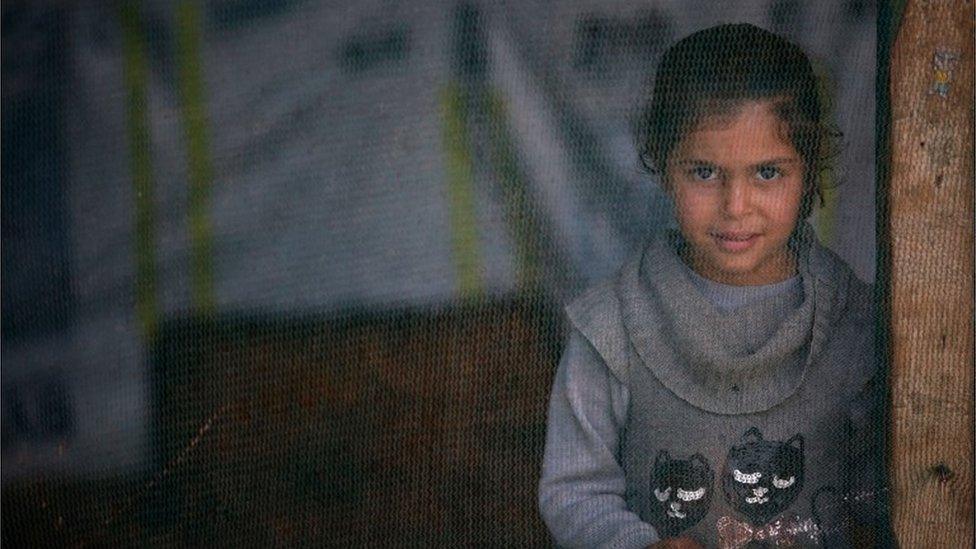Refugee oasis in Cardiff is helping transform lives
- Published
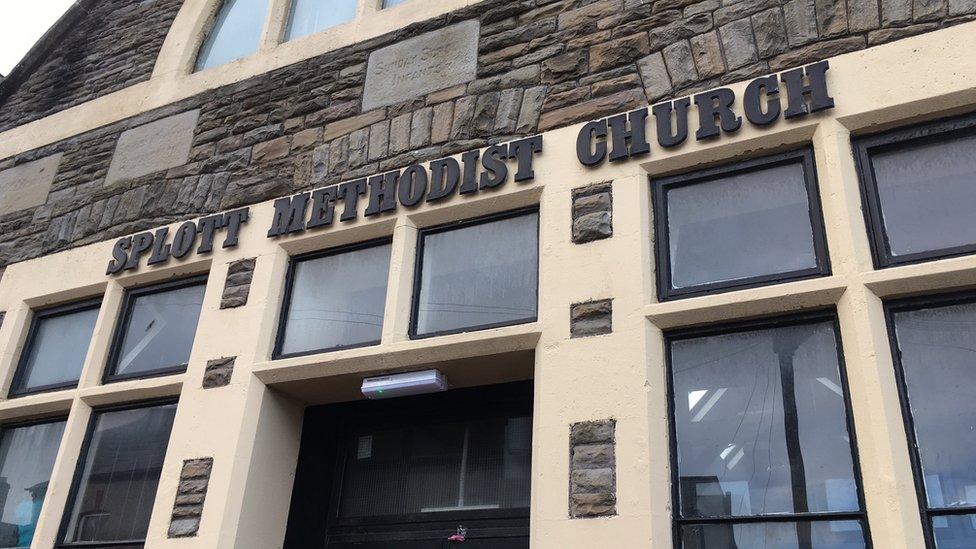
Oasis is based at the former Splott Methodist Church
Every day more than 100 people cross the threshold of a former Methodist church in Cardiff.
But they are not in search of faith. Instead they are looking for shelter, support, friendship and acceptance.
For many, entering the Oasis centre for refugee and asylum seekers marks the end of an often traumatic part of their lives and the start of a fresh future.
But while it is a lifeline for many, some people do not even know it is there - something staff hope to change.
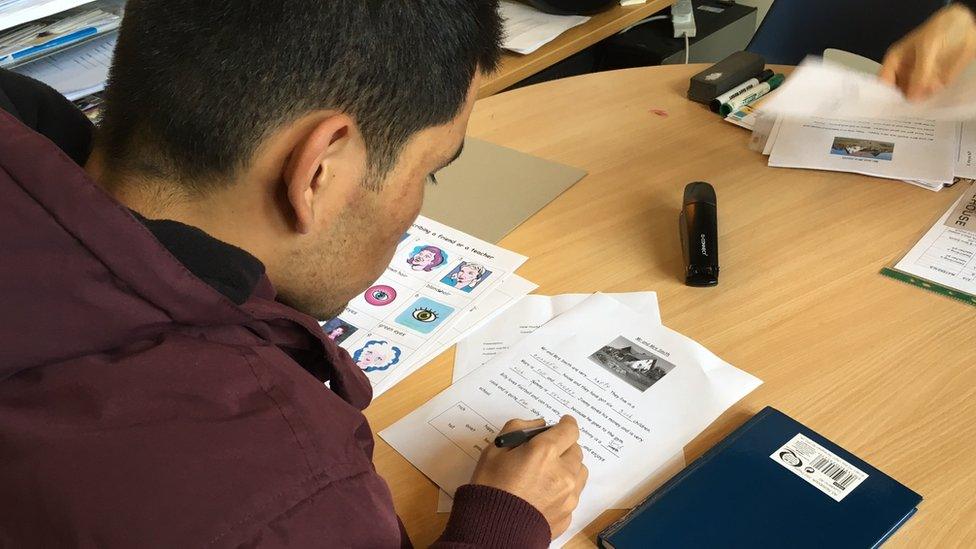
People can learn English at the centre
The Welsh Refugee Council said Home Office figures showed 2,839 people applied for asylum in Wales between January and March 2016, while a further 2,871 received support between April and June.
Set up in 2008, Oasis Cardiff in Splott has helped hundreds of those who have fled war or political persecution from countries including Syria, Eritrea, Sudan, Afghanistan, Kurdistan, Albania, Libya and Iraq.
Run by nine part-time staff and dozens of volunteers, it provides a "safe haven" for those in need as well as providing meals, clothing, language classes, advice and activities aimed at helping people settle in the community.
But while it is a place of salvation to those who use it, staff hope to build stronger links with people in the community and educate the few who have not given users the "warm Welsh welcome" extended by most.
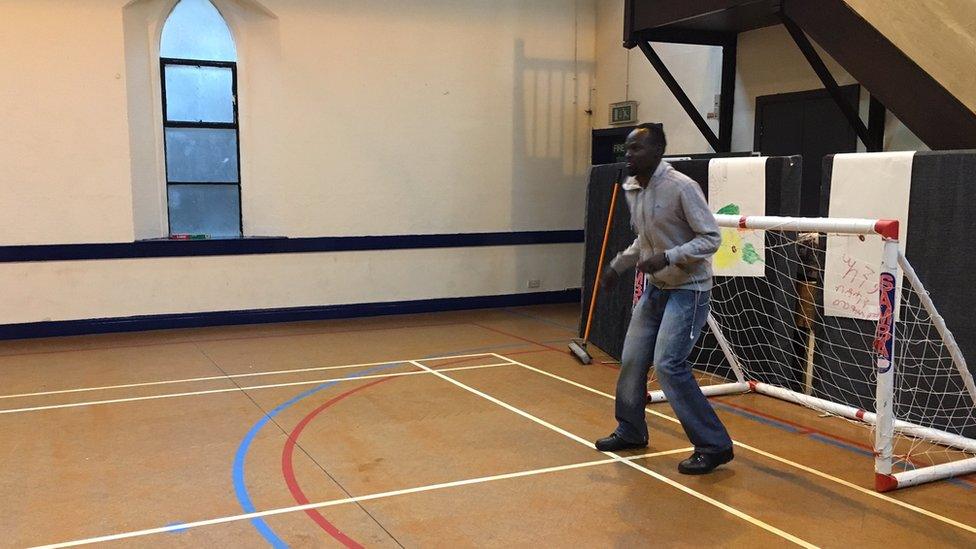
The centre has a sports hall and volunteers run a football team
Centre director and founder Reynette Roberts said: "We've had a couple of emails saying 'we didn't ask for you to come here', a few people that think we get funding from the council - they felt that we had come in and taken away funding from other centres.
"And someone [wrongly] thought we were the ISIS [so-called Islamic State] centre."
But on the whole, Ms Roberts said the community had been largely accepting since it moved to its current location two years ago - and by opening its doors it hopes to encourage more people to learn about its work.
"Our work here is very wide-ranging and we're looking forward to sharing this as well as giving people an opportunity to hear some of the stories of the refugees and asylum seekers who come here," she said.
"People come here and they feel secure. They meet people that are from their area or speak their language.
"We had a young boy from Asia who would not go to school. The deal was he would do English classes here. Now he has gone to college and he's grown in confidence so much. It's lovely to see.
Oasis director and founder Reynette Roberts said the centre provides a safe place for people in need
"There was also a Sudanese chap who didn't speak any English but he got his refugee status. We were able to help him with employment through Jobs Growth Wales and he's gone on to get a job working with security at Cardiff Castle."
"To see people develop, stand on their own two feet and have the confidence to live their own lives is really important," she added.
"That's important because we don't want them to come in here and be dependant on us.
"They've gone through hell both there and in their journey. We have people who lost family members in the Mediterranean Sea so it's often very traumatic. But to see them come through that is really rewarding."
And while not everyone in the immediate vicinity may be aware, news of its work is spreading.
"We get donations from Aberystwyth, Brecon... I was surprised, we've got someone coming from Norway to see what we do, and someone from Germany, and theatre companies who are interested," Ms Roberts said.

Phillip Latigo said representing Wales in the Homeless World Cup was an "amazing" experience
Phillip Latigo, 31, fled Uganda for the UK in August 2015 and said the centre was now a mainstay in his life.
A football coach in his native home, with the help of the centre he has completed training to allow him to coach in Wales.
He helped set up a football team at Oasis and the squad play in the Street Football Wales league in Newport.
Through the tournament, he was selected to represent Wales at the Homeless World Cup in Glasgow in July as well as the Homeless 5 Nations football tournament in Belfast.
He said: "It's [the centre] made me build my confidence, it's made me friends and made me who I am."
Mr Latigo now volunteers at the centre as a way to "give back" to those who helped him.
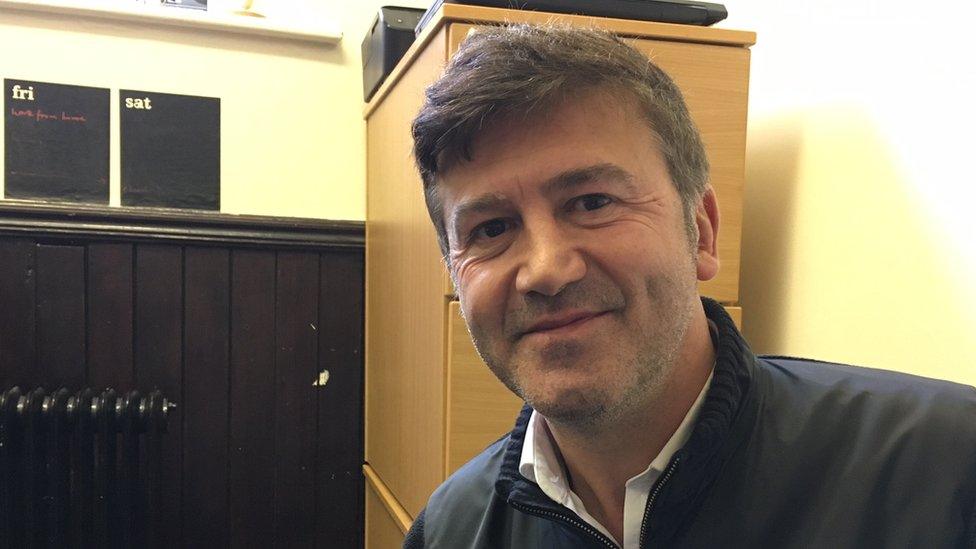
Zohrab Bairmov, 50, left Nagorno Karabakh, in the South Caucasus, in 1997 due to political unrest and after a period away from the UK is now seeking asylum again.
He said the centre was "brilliant" and had provided him with help and advice to further his asylum application.
"If I didn't have it [the centre], it would not be so nice for me because I don't have many friends in Cardiff.
"It's a very, very useful place for immigrants like me or even new arrivals."

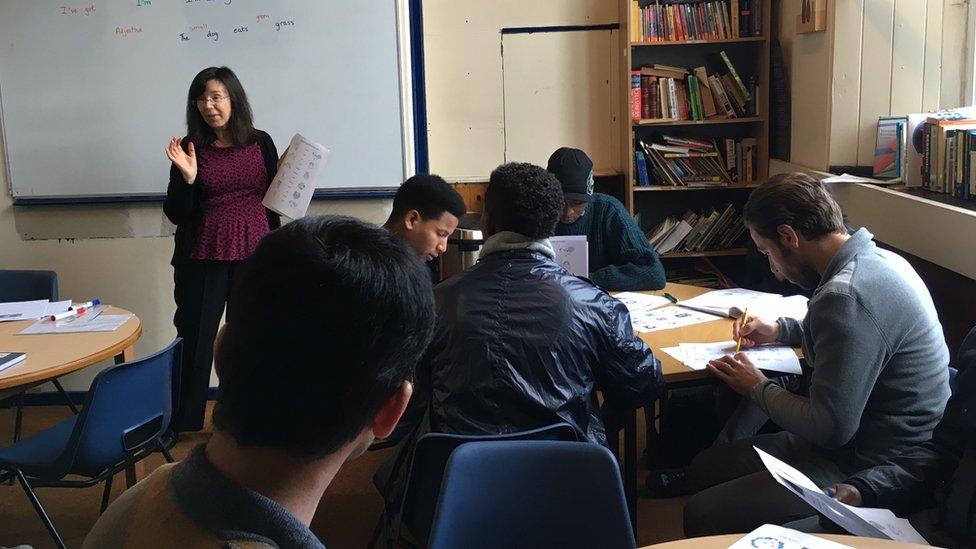
Dozens of people attend English lessons at Oasis
Refugees and asylum seekers are referred to the centre by a number of agencies, including the Welsh Refugee Council. But it receives no government funding.
It costs about £4,000 a month to run and is solely dependant on grants and donations.
It gets regular support from firms such as Tesco, Nando's and KFC which donate surplus food, while staff from local businesses have helped renovate and maintain the building.
But it is keen to recruit more volunteers and held an open day on Friday to encourage residents and firms to get involved.
"We already have strong relationships with many people and groups locally, but we are organising the open day to renew those links and build new ones," Ms Roberts said.
"I understand the pressures on small businesses and the limited resources they have to support worthy causes, but the need here is urgent and any assistance - however limited - is hugely appreciated."
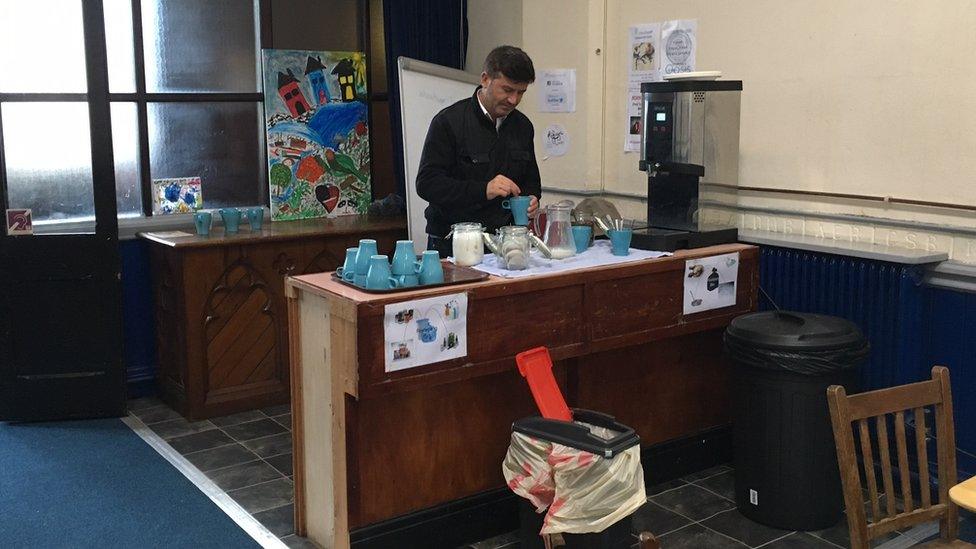
Oasis cafe allows people to socialise with others also who are receiving support
- Published25 August 2016
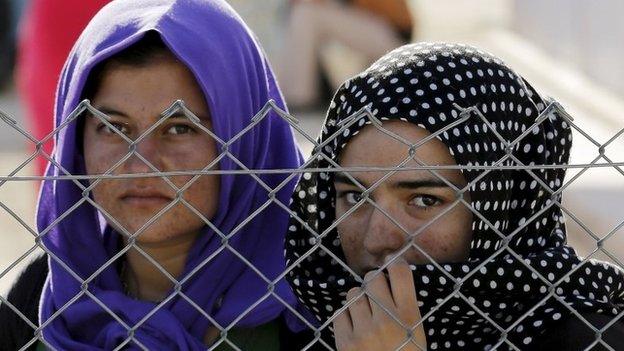
- Published3 August 2016
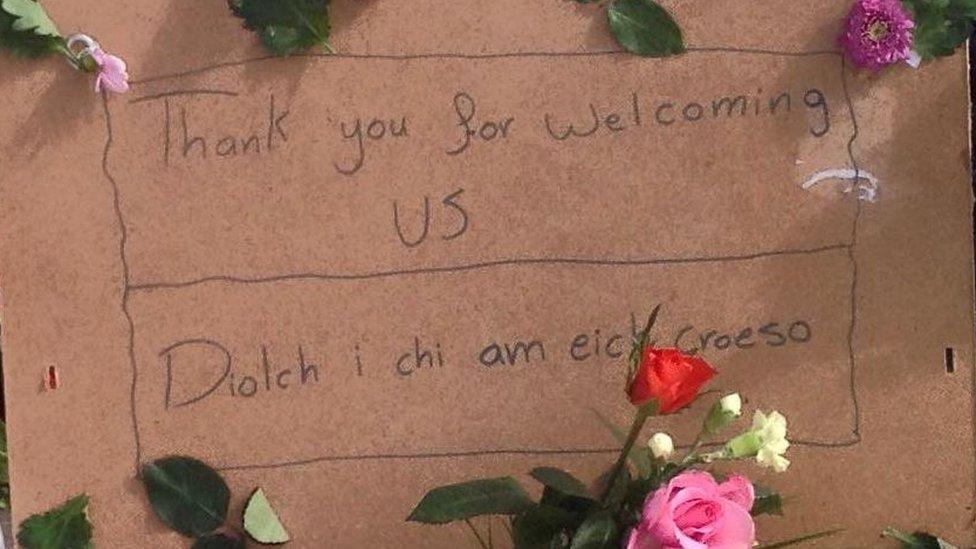
- Published25 April 2016
